our vison for the future and how we plan to end food poverty
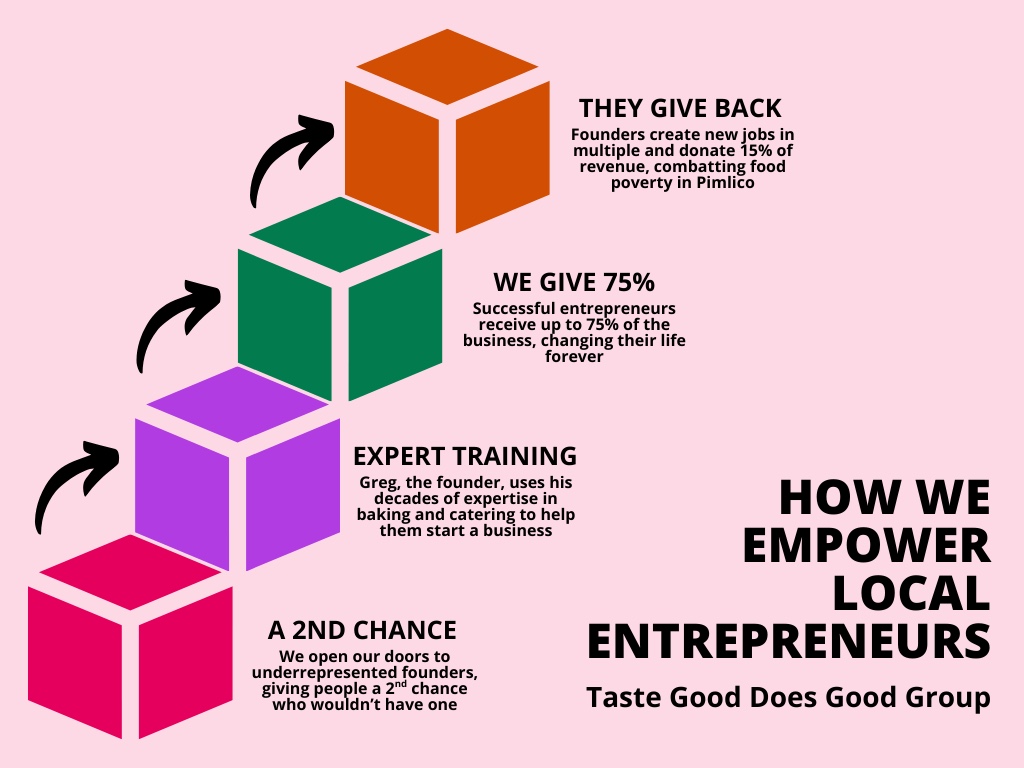
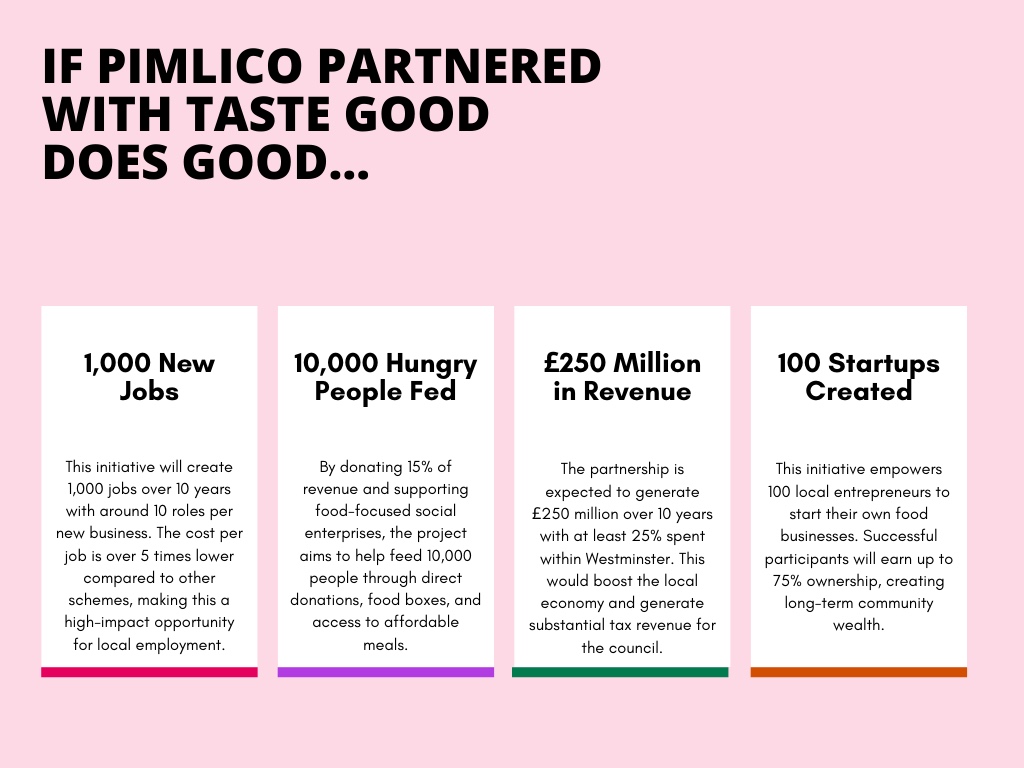
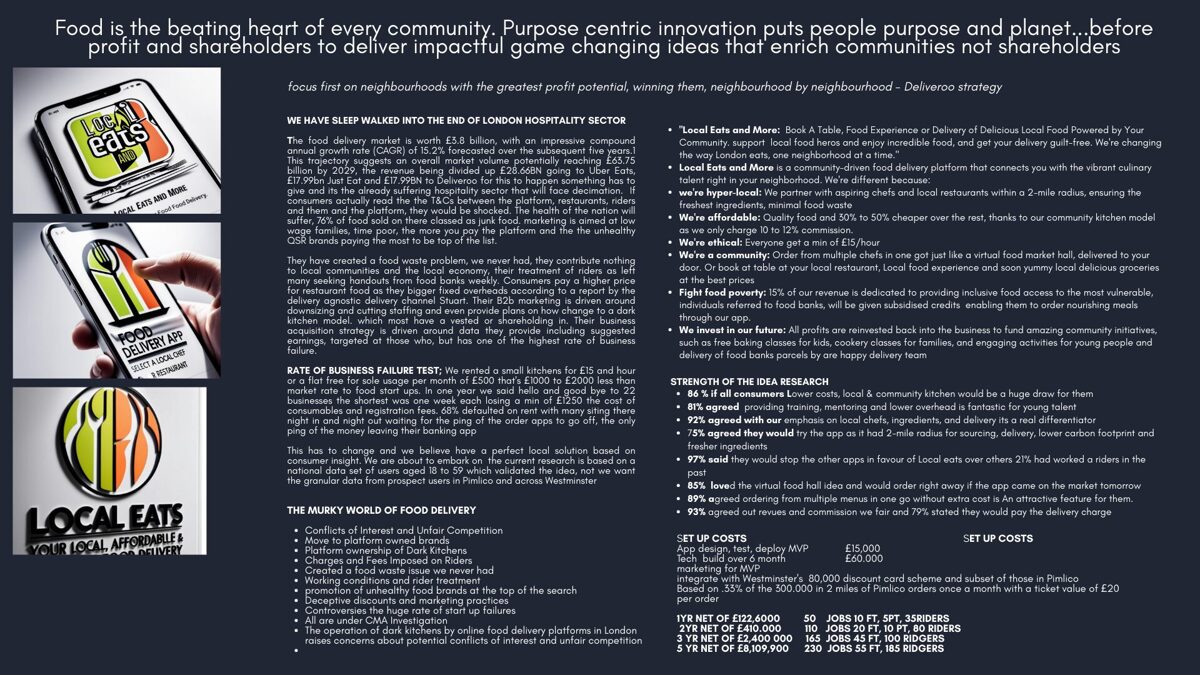
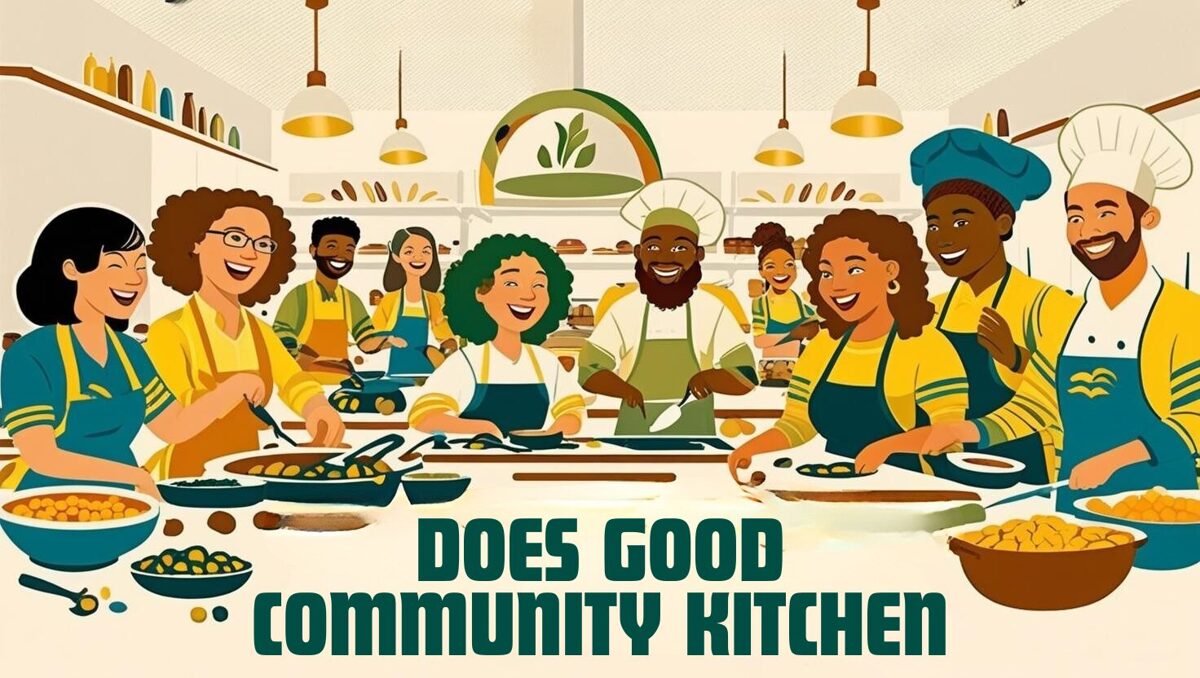
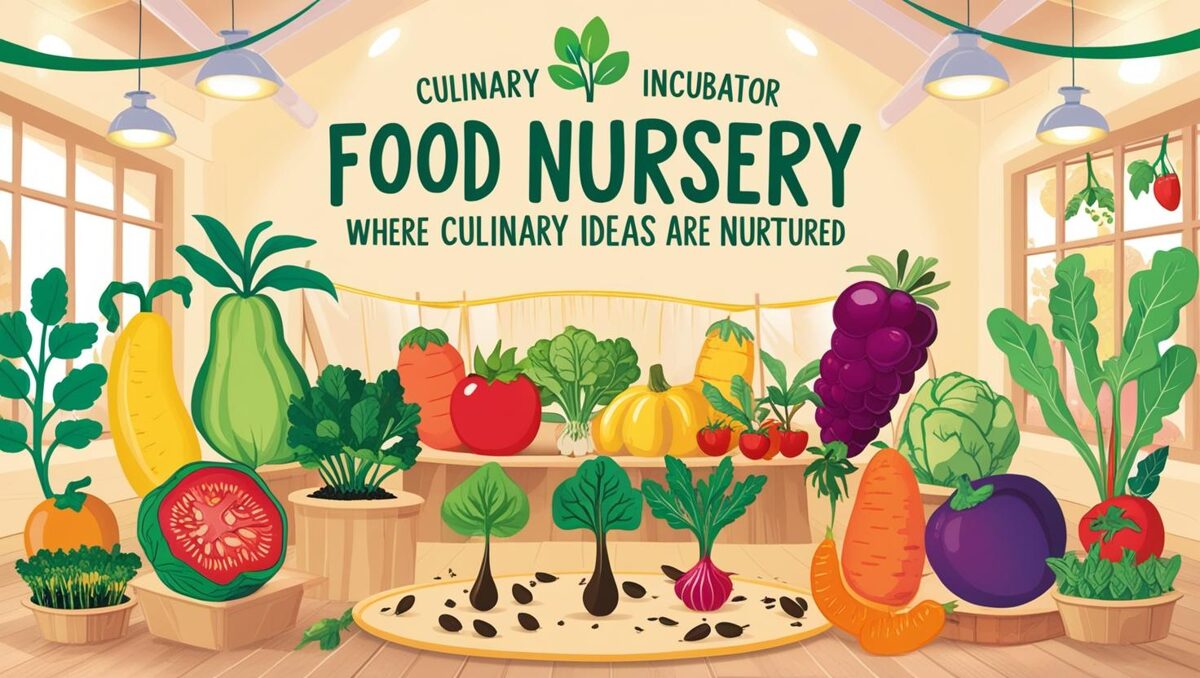
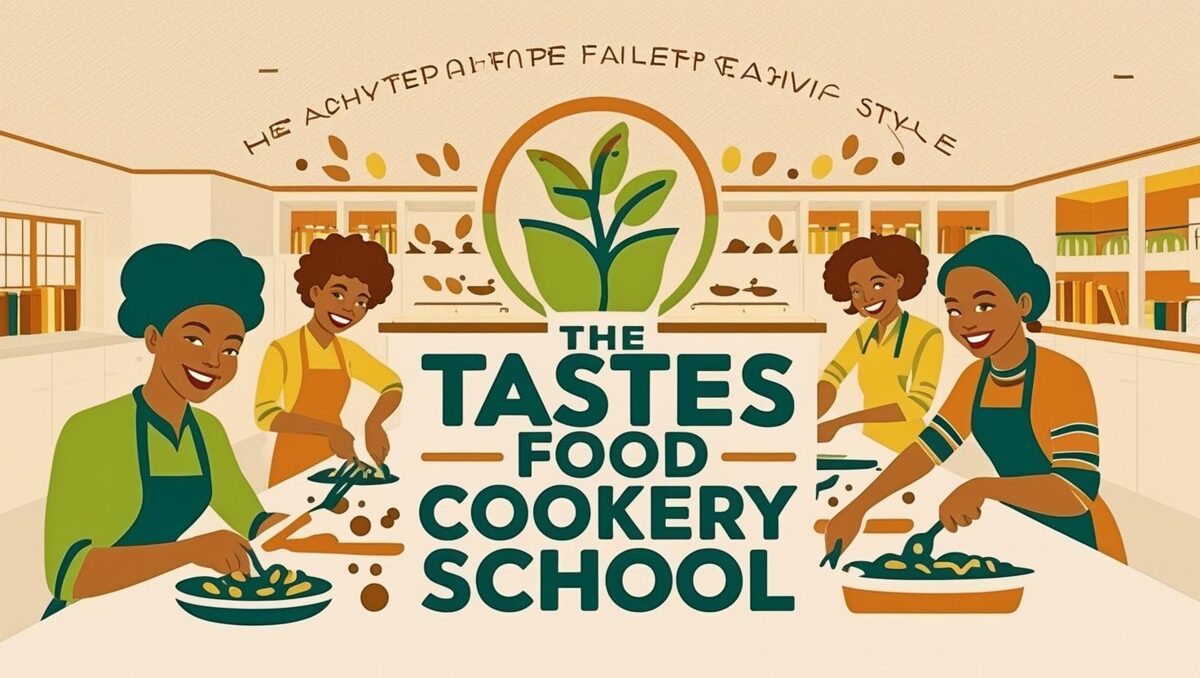
The Catalytic Impact of Entrepreneurship on Local Economies and Social Progress
Authored by By Greg Wixted founder of the Tastes Good Does Good Greg, Co professor of entrepreneurship at the University of North Carolina, London campus,
This report examines the significant role of entrepreneurs, particularly those employing straightforward business models, in driving economic growth and fostering positive social change within local communities. The analysis underscores that entrepreneurial activities, ranging from traditional small businesses to innovative social enterprises, generate jobs, stimulate innovation, enhance competition, and optimise resource utilisation, thereby strengthening the economic fabric of local areas. Furthermore, social entrepreneurs are instrumental in addressing unmet societal needs, empowering marginalized groups, building community resilience, and promoting sustainable practices. The effectiveness of social investing in channelling capital towards ventures with dual social and financial objectives is also highlighted, alongside the crucial role of strategic public funding and well-designed public-private partnerships in amplifying the impact of entrepreneurial initiatives. While social enterprises increasingly adopt self-sustaining models, often reducing the reliance on conventional public funding, targeted government support and collaborative partnerships are essential for fostering robust entrepreneurial ecosystems that lead to lasting local prosperity and enhanced social well-being. The report concludes with policy recommendations aimed at creating an enabling environment for entrepreneurs to thrive and maximise their contributions to their communities.
Introduction: The Entrepreneurial Engine for Local Prosperity and Social Well-being
Entrepreneurship, broadly defined as the creation and growth of a new business enterprise 1, encompasses a spectrum of activities, from launching entirely new ventures to expanding existing businesses into new markets or developing innovative products and processes 1. It is useful to distinguish between different types of entrepreneurs. "Schumpeterian" or transformational entrepreneurs are those who develop new products, processes, or markets, driving innovation and often challenging established norms 1. In contrast, "lifestyle" or replicative entrepreneurs typically operate businesses like local retail stores or service providers, primarily to provide income for themselves and their families, often without introducing significant innovation 1. Both types, however, play crucial roles in the economic landscape.
There is a growing recognition that entrepreneurship serves as a vital engine for both economic growth and social progress at the local level 1. In economies where entrepreneurs can operate flexibly, develop their ideas, and reap the rewards, the benefits to society are substantial 2. Particularly noteworthy is the potential of social entrepreneurship, which places the addressing of social challenges at the forefront of its mission 4. These ventures not only aim for commercial success but also prioritize creating social value and impact, offering innovative solutions to societal problems while simultaneously fostering economic development within their communities 4.
This report aims to explore the multifaceted impact of entrepreneurship on local economies and social well-being. It will examine the critical roles of social investment and public funding in supporting entrepreneurial endeavours, including the capacity of social enterprises to lessen the demand for traditional public funding and the efficacy of collaborative ventures between public and private entities. Furthermore, the report will delve into research studies and business case studies from various locations, including London, and England, to provide a comprehensive understanding of how entrepreneurship can be a catalyst for local transformation. Finally, it will propose policy levers that can be implemented to maximize the benefits of entrepreneurship for local communities.
The Dual Impact of Entrepreneurship on Local Communities
Entrepreneurship exerts a powerful dual impact on local communities, acting as a significant driver of economic growth while simultaneously fostering positive social change.
Economic Growth Drivers
One of the most immediate impacts of entrepreneurship is job creation. Startups and small and medium-sized enterprises (SMEs), often at the heart of entrepreneurial activity, are substantial contributors to employment in local economies 1. Research indicates that newly founded firms generate a significant number of jobs in their initial years 1. Social enterprises, with their focus on serving communities, also play a vital role in creating employment opportunities, particularly for individuals from marginalized groups who may face barriers to accessing the formal labour market 4. Even small businesses with straightforward models are crucial for local employment, forming the backbone of many community workforces 3.
Entrepreneurs are also key drivers of innovation and market expansion. They identify unmet needs and develop novel products, services, and business models to address them, often leading to the creation of entirely new markets and industries 1. Social entrepreneurs specifically focus on developing innovative solutions to tackle pressing social challenges, aiming for both social betterment and economic viability 4. Throughout history, radical innovations introduced by entrepreneurs have been a primary engine of economic progress 2.
The establishment of new entrepreneurial ventures leads to increased competition within the market 1. This heightened competition benefits consumers through lower prices and a wider array of product and service choices. Moreover, the pressure from new entrants often compels existing firms to become more competitive and efficient, ultimately raising the overall productivity of firms and the broader economy 2.
Many social enterprises prioritize resource optimization and sustainability by integrating environmentally friendly practices into their operational models 4. These practices not only align with growing consumer demand for sustainable products but also result in cost savings through efficient resource management. The reduced operational costs can then be reinvested back into the enterprise, fostering further growth and resilience within the local economy 4.
Furthermore, the success of social entrepreneurs in achieving their dual social and financial objectives often attracts investment and capital from impact investors, philanthropic organizations, and even traditional investors seeking socially responsible ventures 4. This influx of investment capital provides the necessary resources for social enterprises to scale their operations, enter new markets, and amplify their social impact, directly contributing to economic growth in the local area 4.
Fostering Positive Social Change
Beyond their economic contributions, entrepreneurs, particularly social entrepreneurs, are significant catalysts for fostering positive social change. They often focus on addressing unmet needs and empowering marginalized groups within their communities 4. By providing resources, skills, and employment opportunities to traditionally underserved populations, these ventures empower individuals to become self-sufficient contributors to the economy, thereby playing a pivotal role in poverty reduction and promoting more inclusive economic growth 4.
Entrepreneurship at the local level contributes to enhancing community resilience 1. By diversifying the economic base through the establishment of various businesses, communities become less vulnerable to economic downturns affecting specific industries or major employers 3. Moreover, entrepreneurs often demonstrate a deep commitment to their communities, reinvesting their profits locally and actively contributing to social causes, which in turn fosters greater social cohesion and sustainable development 3.
Promoting entrepreneurship within a community can also lead to the retention of local talent 3. By offering opportunities for individuals to build fulfilling careers and realize their ambitions within their own communities, rather than seeking opportunities elsewhere, entrepreneurship helps to maintain a skilled local workforce and nurtures a sense of pride and ownership within the community 3.
Social entrepreneurship, by its very nature, aims at improving the living conditions of communities by proactively finding solutions to social issues 6. This can range from providing access to essential services to advocating for social justice and equality. Furthermore, many social enterprises are at the forefront of promoting sustainable practices, integrating environmentally responsible methods into their business operations and advocating for greater environmental awareness within their communities 4.
The interconnectedness of economic and social impact suggests that supporting entrepreneurs with a social mission can create a beneficial cycle of local development. When businesses prioritize the social and environmental well-being of their communities alongside profit, they are more likely to earn the trust and loyalty of local residents. This can translate into increased local support, attracting more customers and talented employees, which in turn strengthens the local economy and enables the business to expand its positive social influence.
Simplicity as a Strategy: Case Studies of High-Impact Entrepreneurs with Straightforward Models
Straightforward business models in entrepreneurship are characterized by a clear and easily understandable value proposition, streamlined operations, and a direct pathway to achieving their intended impact, whether economic, social, or both. These models often focus on addressing fundamental needs or leveraging existing resources in innovative ways without requiring complex technologies or intricate organizational structures.
Several entrepreneurs have demonstrated that significant contributions to local economies and positive social change can be achieved through such simple and direct approaches.
The Antioch Business Collaborative (ABC) in the USA exemplifies this strategy 13. Operating on a hub-and-spoke model, the ABC integrates eight partner organizations to provide crucial support to local businesses in Antioch. Their straightforward approach focuses on three key areas: funding, technical training, and ecosystem mapping. By clearly dividing responsibilities among expert partners, the ABC offers a comprehensive suite of services to small businesses, enhancing their growth and success. In just one year, this collaborative effort supported 91 businesses, facilitated the creation of 162 jobs, and generated a remarkable $307,000 increase in reported sales. Notably, a significant portion of their impact was on women-owned and minority-owned businesses, highlighting the effectiveness of a community-focused approach with clear and direct support mechanisms. The success of ABC demonstrates that a well-organized network providing fundamental business assistance can yield substantial economic and social benefits for a local area.
Bikeworks CIC in East London, UK, provides another compelling case 14. This social enterprise utilizes a common product – bicycles – as a vehicle for tackling environmental, social, and economic challenges within its local community. Their model is straightforward: they recycle and refurbish second-hand bikes, offer cycling training to the public, and create training and employment opportunities for disadvantaged individuals within the burgeoning cycling industry. Bikeworks’ approach is easily understandable and directly addresses local needs for sustainable transportation, skills development, and job creation. By focusing on a tangible product and a clear set of community benefits, Bikeworks has established a strong local presence and achieved a significant positive impact.
The Big Issue, launched in London and now operating across the UK, presents a remarkably simple yet highly effective business model for addressing homelessness 14. The concept is direct: homeless individuals are provided with magazines to sell, offering them a legitimate means to earn income. Vendors purchase the magazines for a small fee and sell them at a higher price, keeping the difference. This model bypasses traditional charity handouts by empowering individuals to work and earn their own living, fostering self-reliance and dignity. In the past year alone, The Big Issue generated over £5 million for its vendors, demonstrating the profound impact of a straightforward income-generating opportunity for a vulnerable population.
Artbox London, also in the UK, showcases how a simple activity – art – can be the foundation of a high-impact social enterprise 15. This inclusive art studio and gallery sells artwork created by people with learning disabilities and autism. Their model provides a direct platform for these individuals to develop artistic skills, engage socially, and earn income through the sale of their creations. Artbox London’s approach is straightforward in its focus on artistic expression and its provision of a supportive environment where marginalized individuals can build confidence and contribute to the community. The success of Artbox London underscores that impactful entrepreneurship doesn't always require complex solutions; sometimes, focusing on a basic human activity with a clear social purpose can be transformative.
Spring Community Hub in Southwark, London, UK, demonstrates a practical and evolving approach to social impact through a relatively simple model 16. Initially focused on providing food and support services to address local food insecurity, the Hub strategically shifted to incorporate trading income to enhance its long-term sustainability. By developing revenue-generating activities alongside its core mission, Spring Community Hub is building a more resilient model for tackling a fundamental community need. This straightforward adaptation ensures the Hub can continue to serve its community effectively while reducing its reliance on traditional funding sources.
These diverse examples, summarized in the table below, highlight that impactful entrepreneurship does not always necessitate complex or technologically advanced solutions. Simple, community-focused business models that directly address local needs and leverage existing resources can be highly effective in driving both economic growth and positive social change.
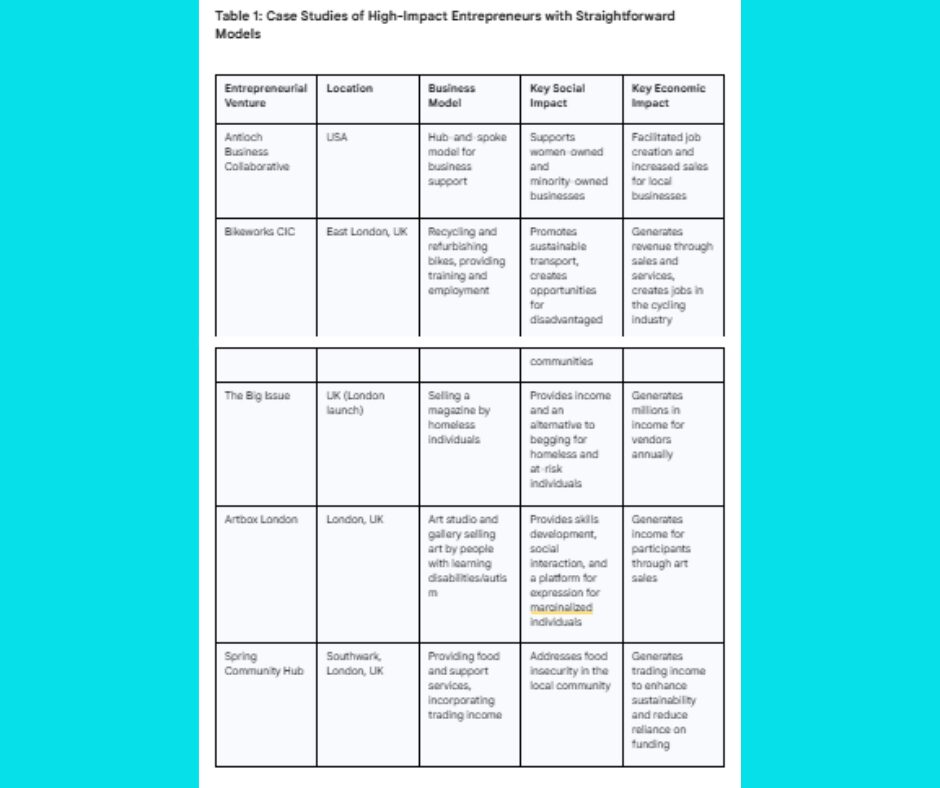
The Evolving Landscape of Social Investing and its Local Impact
Social investing is defined as the practice of making investments with the explicit intention to generate positive, measurable social or environmental impact alongside a financial return, This approach recognizes that capital can be a powerful tool for addressing societal challenges while also achieving financial sustainability. Social investing has proven to be an effective mechanism for driving societal change and fostering economic development at the local level 4. The global market for impact investing has been experiencing significant growth, reflecting an increasing awareness of the interconnectedness of social, environmental, and economic outcomes 17.
Various approaches fall under the umbrella of social investing. Environmental, Social, and Governance (ESG) investing considers factors related to environmental sustainability, social responsibility, and corporate governance in investment decisions 18. Community investing focuses on directing capital towards underserved populations and communities, often through investments in community development financial institutions (CDFIs), community banks, and microfinance institutions 18. Ethical investing involves avoiding investments in companies or industries that conflict with an investor's values or ethics 18.
Social enterprises are at the heart of the social investing landscape, as their core mission involves addressing societal needs through their operations, often with the goal of financial self-sufficiency 19. By generating revenue through the sale of goods or services, social enterprises aim to reinvest their profits back into their social mission, thereby reducing their dependence on traditional public funding sources like grants and donations 20. Operating a social enterprise model can provide a more reliable and sustainable funding stream compared to the often unpredictable nature of philanthropic or government grants 25.
Several self-sustaining social enterprise models exist, including nonprofit organizations that reinvest excess funds, cooperatives owned by and for their members, social purpose businesses founded on addressing a social mission, social firms that employ individuals facing employment barriers, socially responsible businesses that integrate social missions into their operations, and for-profit businesses that donate funds or raise awareness for causes 28. Examples of successful social enterprises with self-sustaining models include Cotopaxi, which sells outdoor gear and dedicates a percentage of its revenue to poverty alleviation, and Blueland, which offers plastic-free alternatives to household essentials 28. The increasing viability of these models suggests a potential shift towards market-based solutions for social problems, which can complement or, in some instances, decrease the need for conventional public funding.
This rings true when the vision, purpose and business model are aligned to solve a global social issue by addressing the underlying and fundamental factors, As the business accelerates so does the amount of funding which leads to greater outcomes and will inevitably create an unintended consequence. The model delivers social change faster than the Public Authorities, the concern is when it comes to the fine divide of “it has a statutory obligation to provide a service” versus “it's within the business model and we have the funds to do it” could be seen as the Public Authorities offloading its statutory obligation onto an enterprise it supports, which should be addressed from the outset when embarking on such ventures
Does Investing in Entrepreneurial Ventures for Shared Prosperity work?
Traditional Public-private partnerships (PPPs) have emerged as a significant mechanism for public authorities to collaborate with the private sector in order to achieve shared goals in the context of major infrastructure and economic development, PPPs involve cooperative arrangements where the public sector retains ownership and control of assets, while the private sector provides financing, construction, and/or management services 34. These partnerships hold the potential to leverage the expertise, efficiency, and capital of the private sector for public benefit, often leading to more robust solutions and potentially lower costs 34.
Less known is Social Public-Private Partnership (Social PPP) this is the reverse wiht the public sector providing the funding or infrastructure and the enterprise has control of the asset but not ownership of infrastructure but owns the business assets and the IP. The Social Public-Private Partnership (Social PPP) initiative in Malaysia exemplifies a collaborative effort that taps into the strengths of the government, the private sector, and social purpose organisations to address social disparities 32. This initiative re-examines traditional methods of delivering social services and aims to foster innovation in addressing societal challenges. Another example is the collaboration between local Public Authorities and private technology firms to enhance access to education in underserved communities, where combined resources led to the development of online learning platforms 33. Similarly, partnerships between nonprofit organisations focused on environmental sustainability and private corporations specialising in renewable energy have resulted in the launch of community solar projects, addressing both environmental concerns and creating local job opportunities 33
Public investment in entrepreneurial ventures that aim to create social impact and boost the local economy offers numerous benefits. Public Authorities can provide crucial financial support through grants, low-interest loans, tax incentives, and subsidies, helping social enterprises overcome financial barriers and scale their operations 37. By prioritising social enterprises in public procurement processes, Public Authorities can also improve market access and networking opportunities for these ventures 37. Ultimately, their backing can amplify the social impact of social enterprises by providing the necessary resources and infrastructure to expand their reach and achieve greater positive outcomes in areas such as poverty alleviation, healthcare, and environmental sustainability 37. This support also contributes to economic empowerment by creating jobs, promoting entrepreneurship, and stimulating local economies, often focusing on marginalised communities 37.
Strategic Social public-private partnerships and well-designed business models represent a powerful mechanism for accelerating both economic growth and social impact within local communities. By carefully considering the potential pitfalls and implementing thoughtful strategies, public authorities can effectively leverage the innovative spirit of entrepreneurs to achieve shared prosperity.
The Long-Term Viability of Social Enterprises and the Role of Public Support
Research increasingly focuses on the long-term sustainability of social enterprises, recognising the critical need for these organisations to balance their social mission with financial viability 21. While the primary purpose of a social enterprise is to serve society, it must also operate with sound business principles, managing expenses, generating revenue, and potentially attracting investment to ensure its long-term survival and impact 42. Achieving sustainability often involves diversifying funding sources 38, with impact investment emerging as a significant pathway for social enterprises to reach financial stability and scale their operations 43. Beyond financial considerations, the long-term success of social enterprises also hinges on strong leadership, effective management, and a deep understanding of the needs of the communities they serve 23.
Public investment plays a strategic role in ensuring the long-term success and sustainability of social enterprises 37. particularly in the early stages of development, can provide crucial capital to help social enterprises establish their operations, pilot their models, and build a track record of impact 17. Moreover, public investment can support the scaling of successful social enterprises, enabling them to reach a wider audience and deepen their impact 37. Given the significant funding gap that many social enterprises face globally 21, strategic public support can be instrumental in bridging this gap and unlocking the full potential of these organisations to contribute to sustainable development.
The interplay between earned income, social investment, and strategic public support often forms the foundation for the long-term sustainability enterprises. While the goal for many social enterprises is to become financially self-sufficient through their trading activities, initial and ongoing support from public authorities can be catalytic, particularly in addressing systemic barriers and market failures that might hinder their growth and impact. By providing targeted resources and fostering a supportive ecosystem for those enterprises with robust and sustainable business models, ultimately maximises their contributions to societal well-being over the long term, and benefits both reputationally by demonstrating the two parties are working in tandem and putting the needs of the people first,
Tastes Good Does Good nominated for startup UK award

London based start-up TASTES GOOD DOES GOOD has been named a finalist ahead of the London final of the UK StartUp Awards.
The UK StartUp Awards was launched to recognise the booming start-up scene across the UK which has accelerated over the last few years with 846,000 new businesses founded in the UK in 2024.
Over 750 businesses have been shortlisted for this year’s UK StartUp Awards and the contribution of these firms - all of which were started in the last three years - is significant, having created over 4,600 new jobs since they were established and generating annual sales of £200 million.
Tastes Good Does Good is the nation's first purpose-driven hospitality and events group founded by Greg Wixted in 2023]. The business has been nominated for the Hospitality Events and Caterer StartUp of the Year Award in London founder Greg Wixted said: “It is an honour to be nominated for the second year in a row and it is testament to the hard work and dedication from a small team of people who have all made an unwavering commitment to making a difference and who are all helping to create a world where no on goes without food And I would like to thank the StartUp Awards team for recognising work we do with our charity partners and in the communities we serve.
Supported nationally by Airwallex, Join Talent & V Rum, the programme will celebrate the achievements of amazing individuals who have turned an idea into an opportunity and taken the risk to launch a new product or service.
The cohort of finalists will be considered for the regional prizes by a panel of seasoned judges with experience founding or supporting entrepreneurial ventures. The winners from each region will then be invited to the first UK final taking place at Ideas Fest, the Glastonbury for Business festival in Hertfordshire on 12th September 2025.
Professor Dylan Jones-Evans OBE, the creator of the UK StartUp Awards, said:
“New businesses are the driving force behind any thriving economy, generating employment, pioneering innovation, and contributing to prosperity across the UK. This year's finalists embody the very best of entrepreneurial spirit - spotting opportunities and, through dedication, skill, and resilience, turning them into thriving ventures that are making a tangible difference in their industries. More importantly, all the winners will go on to represent their region at the 2025 UK National StartUp Awards final later this year”.
The UK StartUp Awards was created in collaboration with the team behind the Great British Entrepreneur Awards, one of the most successful awards programmes in the UK. The UK StartUp Awards are running for the fourth year after launching in 2022.
This year’s regional UK StartUp Awards finalists can be found online at https://startupawards.uk/
ENDS
EDITOR NOTES
New company data compiled from - https://www.informdirect.co.uk/company-formations2022/
StartUp Awards
The UK StartUp Awards is a collaboration between the founders of the Great British Entrepreneur Awards; an established programme nationally receiving thousands of applications annually.
The UK StartUp Awards will recognise the achievements of those amazing individuals who have had a great idea, spotted the opportunity and taken the risks to launch a new product or service.
After extending across the whole of the United Kingdom last year, the UK StartUp Awards will now host awards across each of the 10 UK regions, before hosting the winners of each region at a national final later in t
Tastes Good Does Good Training Centre Forced into Administration Following Abrupt Termination of Teya Payments UK Account and Withholding of Funds
· The withholding of funds pushed the to company into insolvency
· Food taken from the mouths of London’s poorest as one ton food order is cancelled
· Teya’s has misrepresented itself by claiming one of it companies is regulated when it it’s not which could land its CEO in pri son
MARCH 7TH 2025, "Tastes Good Does Good’s new training centre created as part of the company’s social purpose to help fight food hunger and poverty has announced with deep regret its intention to appoint administrators. This drastic measure has been necessitated by the sudden and unexplained closure of its card processing account by Teya Payments UK, and the subsequent withholding of thousands of pounds in earned revenue.
The training centre was set up train up to 1,000 kids bakery instructors who would teach kids up and down the country to bake via baking clubs with ingredients provided free by the group. It was also to be the training centre for those gifted a business to create the next generation of purposeful entrepreneurs and move young people out of poverty to build a more equitable food system and give them the opportunity to create a legacy for their family.
The centre, which relies heavily on card transactions for its operational funding, received no prior notification or explanation for the termination of its account. Teya Payments UK has informed "Tastes Good Does Good" that the funds will be held for up to 180 days, or until such time as they deem the funds no longer a risk to their business.
A business which has had $1.1 billion of investment and who’s founder, and chairman publicly states. “I'm super passionate about local entrepreneurs, especially in tier two towns, especially underserved areas... the market just doesn't really speak to them. But a few weeks later the board of their RMS brand voted to liquidate the company thus terminating the contacts with its clients leaving many tens of thousands without merchant services.
Greg Wixted, Founder of Tastes Good Does Good stated “We are devastated by Teya Payments UK’s decision and what make its worse they are taking the bread out of the mouths of the poorest families in London all the time they are acting like lawless mobsters, I have counted over 30 breaches of the FCA rules, they have made misleading statements about its FCA registration, which is a criminal offence under the 2006 fraud act, there emails and their requests for client invoice are in clear breach GDPR and offer people £100 if they recommend an other business and write a positive revie which is a breach Digital Markets, Competition and Consumers Act DMCCA
The sudden loss of our revenue stream, without any explanation has forced us into this impossible situation. We are a purpose driven business with an unwavering commitment to help create a world where not one goes without food, an this action jeopardizes the vital services we provide to our community. We have attempted to engage with Teya Payments UK to resolve this matter but have received no satisfactory response.” As the breaches of the FCA rules are so serious we have deemed it necessary to involve the FCA and have had a formal complaint drafted to the ICO, FCA and will details all the allegations to the Insolvency services investigations team to look into the directors behaviour pursuant to the Company Directors Disqualification Act,
"Tastes Good Does Good" is will work with the insolvency practitioners to initiate the administration process. The centre is exploring all possible avenues to mitigate the impact of this closure and to secure a future for its valuable work.
Community leader , Daivd Lee commented on hearing the news “This closure will have a devastating impact on families over the weeks as we were expecting to receive a ton of packed and dry goods/ The donations provided by ‘Tastes Good Does Good’ are essential to our community and I am shocked at the behaviour and the attitude of their card processing company.
The centre calls on Teya Payments UK to immediately release the withheld funds and provide a transparent explanation for its actions. "Tastes Good Does Good" is committed to pursuing all legal options to recover the funds, and damages and hold Teya Payments UK accountable for the damage caused.


Contact: Greg Wixted, [email protected]
The Doughnut Evolution: From Classic Ring to Hybrid Sensations
From Classic Ring to Hybrid Sensations and the Rise of the Brionut at Cakery Wonderland
The humble doughnut. A simple ring of fried dough, yet it holds a special place in our hearts (and stomachs). From its classic glazed iteration to the explosion of flavors and toppings we see today, the doughnut has undergone a remarkable evolution. But perhaps the most exciting chapter in this sugary saga is the rise of the hybrid doughnut – a testament to culinary creativity and our insatiable appetite for innovation. And at the forefront of this delicious revolution, you'll find the delectable brionut, a star offering at Cakery Wonderland.
A Brief History of the Doughnut:
Before we dive into the world of hybrids, let's take a quick trip down memory lane. The exact origins of the doughnut are debated, but many believe they can be traced back to Dutch settlers who brought their "olykoeks" (oily cakes) to New York in the 19th century. These early doughnuts were essentially fried dough balls, often filled with raisins or apples.
Over time, the doughnut evolved. The now-iconic ring shape emerged, likely to ensure even cooking. The invention of the automated doughnut machine in the 1920s led to mass production, making doughnuts readily available and solidifying their place in popular culture.
The Rise of the Gourmet Doughnut:
For decades, the classic glazed doughnut reigned supreme. But as palates became more adventurous, so did the doughnut. The gourmet doughnut movement took hold, with bakeries experimenting with unique flavors, glazes, and toppings. Suddenly, doughnuts weren't just a quick breakfast treat; they became a canvas for culinary artistry.
We saw the emergence of doughnuts inspired by everything from exotic fruits to savoury spices. Maple bacon, salted caramel, and lavender honey became commonplace flavours, elevating the doughnut experience to new heights.
The Hybrid Doughnut Revolution:
But the story doesn't end there. The culinary world is constantly pushing boundaries, and the doughnut was no exception. Enter the hybrid doughnut – a fusion of the classic doughnut with other beloved pastries. This trend took the world by storm, creating a frenzy of excitement and long queues outside bakeries.
The most famous example, of course, is the cronut – a croissant-doughnut hybrid that took New York City by storm. This flaky, buttery creation combined the best of both worlds, creating a truly irresistible treat.
The Brionut: A Star at Cakery Wonderland:
And now, at Cakery Wonderland, we're thrilled to introduce our own sensational hybrid: the brionut. A delightful marriage of brioche and doughnut, the brionut boasts a rich, buttery flavor and a light, airy texture. It's the perfect balance of indulgence and sophistication, a testament to our team's passion for creating innovative and delicious treats.
Our brionuts are handcrafted with the finest ingredients, using a traditional brioche dough that's carefully proofed and then fried to golden perfection. The result is a doughnut that's incredibly tender and melt-in-your-mouth, with a subtle sweetness that's perfectly complemented by our range of unique glazes and toppings.
What Makes the Brionut Special?
- The Brioche Dough: The key to the brionut's exceptional flavor and texture lies in the brioche dough. Enriched with butter and eggs, this dough creates a luxurious, almost custardy interior, unlike any other doughnut you've tried.
- Handcrafted with Care: At Cakery Wonderland, we believe in quality over quantity. Each brionut is lovingly handcrafted by our skilled bakers, ensuring that every bite is a moment of pure bliss.
- Creative Flavors and Toppings: We're constantly experimenting with new and exciting flavor combinations for our brionuts. From classic glazes to innovative toppings, there's a brionut for every palate.
- A Unique Culinary Experience: The brionut is more than just a doughnut; it's an experience. It's the perfect treat for a special occasion, a delightful afternoon snack, or simply a way to indulge in a moment of pure pleasure.
The Future of Doughnuts:
The doughnut's journey is far from over. As culinary innovation continues to flourish, we can only imagine the exciting new hybrid creations that await us. But one thing is certain: the doughnut will continue to evolve, delighting our taste buds and capturing our imaginations for generations to come.
And at Cakery Wonderland, we'll be right there at the forefront, pushing the boundaries of what's possible and bringing you the most delicious and innovative doughnut creations, like our signature brionut. So come visit us and experience the magic for yourself. Your taste buds will thank you!
Beyond the Brionut: Exploring Other Doughnut Hybrids:
While the brionut is our star, the world of hybrid doughnuts is vast and exciting. Here are a few other notable examples:
- Berliner: A German doughnut, typically filled with jam and dusted with powdered sugar.
- Bronut: A cross between a brioche and a doughnut.
- Chouxnut: A doughnut made with choux pastry, known for its light and airy texture.
- Croissant Doughnuts (Cronuts): The iconic hybrid that started it all, flaky and buttery with a doughnut's signature sweetness.
- Doughnut Muffins (Duffins): A delightful cross between a doughnut and a muffin, often baked instead of fried.
- Wonuts: Doughnuts made with wonton wrappers, offering a lighter, crispier texture.
- Crodough: A croissant-doughnut hybrid, similar to the cronut.
A to Z of Doughnuts:
Let's celebrate the diversity of doughnuts with a quick A to Z:
- Apple Cider Doughnuts: A fall favorite, often spiced with cinnamon and nutmeg.
- Berliner: (See above)
- Brioche Doughnuts: Made with rich brioche dough, similar to the brionut.
- Cake Doughnuts: Denser and more cake-like than yeast doughnuts.
- Cruller: A twisted doughnut, often glazed.
- Doughnut Holes: The bite-sized centers of doughnuts.
- Filled Doughnuts: Doughnuts filled with cream, jelly, or other fillings.
- Glazed Doughnuts: Classic doughnuts with a sweet glaze.
- Honey Glazed Doughnuts: Doughnuts with a honey-based glaze.
- Jelly Doughnuts: Doughnuts filled with jelly or jam.
- Krispy Kreme Doughnuts: A popular brand known for their original glazed doughnuts.
- Long Johns: Elongated doughnuts, often filled and glazed.
- Maple Bacon Doughnuts: A sweet and savory combination.
- Old Fashioned Doughnuts: A dense, cake-like doughnut with a crackly glaze.
- Powdered Sugar Doughnuts: Doughnuts dusted with powdered sugar.
- Quark Doughnuts: Doughnuts made with quark cheese, a German dairy product.
- Ring Doughnuts: The classic doughnut shape.
- Sour Cream Doughnuts: Doughnuts made with sour cream, adding a tangy flavor.
- Twist Doughnuts: Doughnuts twisted before frying.
- Ube Doughnuts: Doughnuts flavored with ube, a purple yam.
- Vanilla Glazed Doughnuts: Doughnuts with a vanilla-based glaze.
- Yeast Doughnuts: Light and airy doughnuts made with yeast.
- Zeppole: An Italian doughnut, often dusted with powdered sugar.

Why I could never take calls from clients.
I was chatting to the CEO the other day who rang up to discuss an event she was hosting in the UK, the client is not British and comes from a wealthy family and runs a sizable business. She wanted to know more about the impact we make and why did I chose food poverty as our purpose. I have never been asked that by a client I must admit, So I explained that food poverty can severely affect low-income families with limited resources to plan and prepare healthy meals for themselves and their children and some have difficulty in affording fresh ingredients to cook wholesome meals at home.
Food poverty is not just an African problem
Her response was she just assumed food poverty and starvation is a thing of the past and affected the African nations. She seemed a bit bemused when told her over 9m adults and 4m children are food insecure. With 1.5 m of those live in London and that one of the reasons we moved to a purpose-driven model as we wanted to be part of the solution.
Why are so many people living on the bread line?.
It’s because many have a lack of income or are badly paid rather than food is scarce and it's the main driver of hunger, food poverty and food-related health inequalities in England. While food inflation did level off, but it’s on the rise again and food while food prices remain high and people across the country will continue to struggle to afford essentials.
The is no short answer to that question it’s a complex issue and it starts with food waste; we have become a convenience and throw-away society and I think people and the government do not care as much these days.
What about waste is that not part of the problem?
Yes, but there is no short answer to that question it’s a complex issue, say that we have become a convenience and throw-away society and I think people and the government do not care as much these days while corporations are focused on profits and shareholders.
We have huge amounts of food waste from hospitality businesses, supermarkets could play a much bigger role in cutting food waste. But this would lead to some uncomfortable questioning of their practices. Food manufacturers and some we don’t see or know much about is the waste created by the likes of @deliveroo and @just eat. Why is that? they tell the restaurant when to cook the food and when the drivers are late, it's cold and fast-food companies have to throw it away as its breaches their holding times policy. Wow, I never thought of it like that and never ordered from them. they have their family chefs,
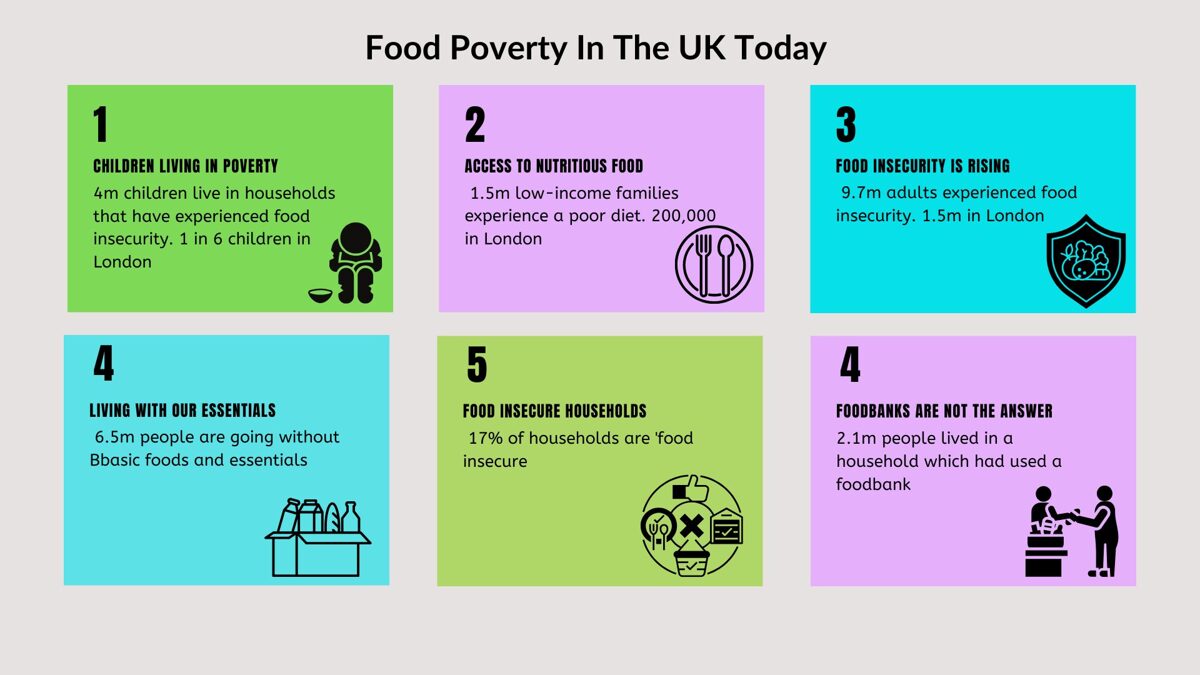
But what would you do to end poverty?
My response is the same as I always say “we need collective responsibility and a much bigger effort from everyone in the food industry. I believe we have a shared responsibility, and I think that if you want to start or are operating a food company, you should be mandated to make a scaled contribution of up to 1% of revenue to ending food insecurity, poverty and waste. This creates a system where fighting hunger and waste becomes a core part of doing business in the food industry and would have a huge impact and benefits”.
It would create a massive and sustainable fund and an ever increasing one at that, this could be dedicated to addressing food poverty. As the food industry grows, so would the contributions, ensuring a sustainable flow of resources.
Universal participation: Requiring every food company to contribute creates a sense of shared responsibility across the industry, from small local businesses to multinational corporations. It has to a fair an equal contribution so by deploying a sliding scale from pop up to grown up.
The pool of funding could be used to provide growth funding to those that are mission driven or the many SME’S and CIC’s that want to or who are making a bigger impact in society. This would help them to expand their operations and innovate as they are often less attractive to lenders and VC’s.
With a steady stream of funding, the focus could shift from solely addressing immediate needs to investing in long-term solutions and preventative measures in sustainable agriculture, economic development, and education and empowerment.
There comes a time when one should just stop speaking
In a bit of a raised voice is said” to make this work, we need to change the influence of shareholders over corporate decision-making, many PLCs shareholders them to deliver the maximum shareholder value and this often takes precedence over other considerations. Because let’s be honest doing the right thing in most PLC’s means doing the right thing for their shareholders and no one else. There would need to be a shift in focus from solely maximising shareholder value to a more holistic approach that considers the interests others, from employees and consumers to communities and the planet. She said perfect, you will be the perfect caterer and guest.
sorry what’s the event ?? “it’s a round table dinner for 30 CEO’S and something along the lines how the world has become so wasteful, I zoned out as a sudden wave of nausea hit me
The Tastes Good Does Good Group Announces the Launch of Wonderland Experiences: A New Era of Purpose-Driven Culinary Adventures and Experiences.

s the UK anticipates a surge in tourism with 43.4 million visitors and £33.7 billion in spending projected for 2025 (VisitBritain), The Tastes Good Does Good Group, the nation’s only purpose-driven and sustainable hospitality group, is delighted to announce the launch of Wonderland Experiences, a new culinary venture that aims to capitalize on the fast-growing experience tourism market and traveler demand for unique and authentic culinary experiences.
Conceived by our in-house Imagineering team and founder Greg Wixted, who has built a group of businesses that not only create delicious and specialist food experiences but use a portion of its revenue to fight food poverty.
Wonderland Experiences will offer a curated collection of immersive and engaging activities, designed to transport guests beyond the ordinary. From mastering the art of a Royal Afternoon Tea to embarking on a majestic picnic in St. James's Park, each experience promises a unique blend of culinary delights, cultural immersion, and social impact.

"Tourists are seeking unique and authentic immersive engagements over physical goods," says Greg Wixted. "London offers some amazing experiences, and the segment is growing. You only have to look at how many afternoon tea bus tours there are. We wanted to offer something different, more curated, service-led, and truly memorable, so we came up with Wonderland Experiences. Each experience comes with its own recipe book that also delves into the history of great British food, so guests can recreate that culinary experience at home.”
Wonderland Experiences' launch offerings include:
- Half-Day Afternoon Tea Masterclass: Learn to create a traditional afternoon tea spread and enjoy it with a glass of great British sparkling wine. Guests also receive a personalized apron and afternoon tea recipe book.
- Bridgerton Afternoon Tea: A luxury afternoon tea delivered to your doorstep, complete with an afternoon tea butler, champagne, and elegant treats. Guests also take home a Bridgerton-inspired recipe book.
- Dessert Tower Making Experience: Master the art of dessert tower creation and create your own 50cm dessert tower. Guests receive a recipe book, framed certificate, and apron.
- Royal British Picnic in St. James's Park: Enjoy a regal picnic experience with a personal picnic butler, Highgrove estate drinks, and a curated menu with ingredients from local and royal producers. Guests receive a recipe book packed with the producers' amazing food journeys.
As part of the Tastes Good Does Good Group, Wonderland Experiences will use 15% of its revenue to support food charities and to create new startups. When these startups reach £150,000 in revenue and profitability, 75% is then gifted to aspiring chef entrepreneurs from disadvantaged backgrounds as a way of breaking the cycle of poverty and building a more equitable and sustainable food system.
Join Wonderland Experiences on a culinary adventure that tastes good and does good.

Cakery Wonderland Unveils Luxury Handbag Collection: Where High Fashion Meets Exquisite Taste
 Prepare
to be captivated by the latest innovation from Cakery Wonderland, the
award-winning creators of extraordinary culinary experiences. Today, they
announce the launch of their Luxury Handbag Collection, a stunning fusion of
high fashion and delectable treats, designed to elevate the at-home afternoon
tea experience.
Prepare
to be captivated by the latest innovation from Cakery Wonderland, the
award-winning creators of extraordinary culinary experiences. Today, they
announce the launch of their Luxury Handbag Collection, a stunning fusion of
high fashion and delectable treats, designed to elevate the at-home afternoon
tea experience.
This groundbreaking collection is one of the first projects from Cakery Wonderland's newly formed "Food Imagineering" team. "We wanted to elevate the entire afternoon tea experience," says [Your Name], founder of Cakery Wonderland. "The packaging had to reflect the ritual and status that afternoon tea holds in British society. Why shouldn't the packaging be as much a part of the experience as the food itself?"
Indeed, recent studies show a significant rise in the popularity of at-home afternoon teas. According to [Source - e.g., Breast Cancer Now research], 67% of Brits plan to indulge in an afternoon tea this year, with Millennials and Gen Z leading the trend. This highlights a growing desire for luxurious and convenient ways to enjoy this beloved tradition at home.
Tasked with developing innovative packaging concepts for their first range of direct-to-consumer products for Christmas 2024, the team conceived the wildly successful Macaron Handbags. These elegant handbags, each containing three luxury gift boxes filled with hand-piped macarons, were an instant hit, selling over 1000 units.
Building on this success, Cakery Wonderland has expanded the collection to include a range of luxurious afternoon tea experiences:
- Valentine's Day Afternoon Tea Handbag: A romantic indulgence for two, featuring a selection of delectable savories, delicate sweets, and their signature light-as-air scones.
- Mother's Day Afternoon Tea Handbag: A tribute to elegance, filled with handcrafted treats fit for a queen, perfect for celebrating the special women in your life.
- Easter Afternoon Tea Handbag: A festive feast of Easter-themed delights, brimming with savory bites, sweet treats, and a touch of boozy indulgence.
In addition to these exquisite afternoon tea experiences, the collection also includes:

- Valentine's Sweet Treat Handbag: A decadent assortment of six treat boxes filled with boozy love hearts fudge, iced and vanilla heart shortbreads, macarons, and handmade French chocolate truffles.
- Luxury Square Easter Egg and Handbag Box: A show-stopping Easter creation featuring a 14cm handmade Easter egg filled with lavish champagne truffles.
Royal Ascot Exclusive:
Just in time for the prestigious Royal Ascot, Cakery Wonderland is also creating an exclusive afternoon tea handbag designed specifically for Ladies Day. This limited-edition handbag will be the epitome of elegance and sophistication, featuring a curated selection of the finest treats to complement the day's festivities.

A Feast for the Senses
"Our Handbag Collection is where culinary artistry meets high fashion," adds [Your Name]. "These handbags are designed to delight the senses and create an unforgettable experience."
More Than Just a Meal
Cakery Wonderland's Luxury Handbag Collection is more than just a meal; it's a statement. It's a testament to the brand's commitment to innovation, quality, and social responsibility. With each purchase, customers are not only indulging in a luxurious experience but also contributing to the fight against food poverty.
The Purpose-Driven Entrepreneur Tackling Food Poverty in London
He's been called a "culinary visionary" and the "nation's sweetest Sugar Daddy." But beyond the witty monikers, Greg Wixted is a force to be reckoned with in the world of purpose-driven business. As the founder of Tastes Good Does Good Group, he's proving that social impact and business success can go hand in hand.
Tayla Rachman sat down with Greg Wixted to discuss his journey, his innovative business model, and his ambitious vision for the future.
Q: What inspired you to start Tastes Good Does Good Group?
GW: I've always believed that businesses have a responsibility to make a difference. When the pandemic hit, I was deeply troubled by its devastating impact on communities and the alarming rise of food insecurity. Did you know that in London alone, 1.5 million people, including 1 in 6 children, struggle to access enough food? I knew I had to be part of the solution. That's when I decided to build a business that not only created delicious food experiences but also gave back in a meaningful way.
Q: Your business model is quite unique. Can you tell us more about it?
GW: It's about creating a sustainable ecosystem of positive change. We dedicate 15% of our revenue to fighting food poverty by supporting food charities and incubating new food businesses. We then gift up to 75% ownership of these businesses to aspiring entrepreneurs from disadvantaged backgrounds, empowering them to build their own success while contributing to a greater purpose. It's about breaking the cycle of poverty and creating a more equitable food system.
Q: You've achieved a lot in a short time. What are you most proud of?
GW: I'm incredibly proud of the impact we've made in just 28 months. We've donated over 4 tonnes of food and £16k of equipment. We've created five businesses, all with growing revenue. We're an AQA-certifying training center and have served over 23,000 customers at 350 truly memorable events. We've saved 1090kg of food waste from landfill, gained our Good Business Charter accreditation and Living Wage Foundation accreditation, and saved our customers £105,000 in hire charges as part of our customer promise.
But beyond the numbers, it's the stories of the people we've helped that truly matter. Meeting young chefs who believe in our purpose and want to build a better future for themselves and their families is incredibly rewarding. And knowing that we're contributing to a larger movement towards addressing food insecurity is truly humbling.
Q: Do you consider yourself a catalyst for global change?
GW: While I wouldn't call myself a catalyst for global change, I'd like to think I've inspired others to think beyond profit and embrace a purpose-driven approach to business. I believe I've created an innovative and sustainable business model that can be a powerful catalyst for change. With each new business and entrepreneur nurtured through this model, the movement gains momentum, amplifying its impact on communities and the world. I would love to inspire large, global food brands to adopt a similar purpose-driven approach. I believe this would be the tipping point for real, lasting change in the fight against food inequality, creating a world where everyone has access to nutritious food and opportunities to thrive.
Q: You're also passionate about education. Tell us about the new training centre you're setting up.
GW: Sharing my knowledge and experience with aspiring entrepreneurs is something I'm truly passionate about. I've been a lecturer at the University of North Carolina since 2018 and have used that experience, along with our mission at Britain Loves Baking, to develop the training center. Our mission is to arm the nation's kids living in poverty with the skills to bake for free and to teach kids more about where their food comes from.
But how could we teach 4.3 million kids to bake? That's when we came up with the idea to provide free professional bakery courses to teachers, youth workers, community leaders, youth leaders, and food charity volunteers so they could teach kids to bake. We will also fund free community, church, and after-school-based baking clubs. This is part of our holistic approach to social impact. For me, true success lies in scaling this and creating a positive ripple effect that benefits local communities, the nation, and the world.
Q: You've done a lot in a short space of time – what were the biggest challenges you faced or are facing?
GW: The three biggest challenges we faced were skepticism about my motives, finding the right partners, and getting advice and support. Many questioned why any business would want to give so much away. "No one sets up a business to give it all away," they'd say. But that's not true. You only have to look at Patagonia, which has become a shining example of a purpose-driven company, proving that prioritizing social and environmental responsibility can go hand-in-hand with business success.
We spent a lot of time asking ourselves if we were doing this the right way, until we were offered support from the amazing team at the Selby Trust, who are helping us with our structure, setting the foundations for scaling the idea, and providing grants to help us do this.
Q: What do you think the answer to food poverty is?
GW: More collective responsibility and a much bigger effort from everyone in the food industry. I believe we have a shared responsibility, and I think that if you want to start or are operating a food company, you should be mandated to make a scaled contribution of up to 1% of revenue to ending food insecurity and poverty. This creates a system where fighting hunger becomes a core part of doing business in the food industry and would have a huge impact and benefits, including:
- Massive and sustainable funding: to create an ever-increasing pool of funds dedicated to addressing food poverty. As the food industry grows, so would the contributions, ensuring a sustainable flow of resources.
- Universal participation: Requiring every food company to contribute creates a sense of shared responsibility across the industry, from small local businesses to multinational corporations.
- Incentive for growth: Linking contributions to company growth could incentivize companies to expand their operations and innovate, knowing that their success would also contribute to fighting hunger.
- Focus on prevention: With a steady stream of funding, the focus could shift from solely addressing immediate needs to investing in long-term solutions and preventative measures in sustainable agriculture, economic development, and education and empowerment.
But to make this work, we need to change the influence of shareholders over corporate decision-making. In many publicly traded companies, the pressure to maximize shareholder value often takes precedence over other considerations. There would need to be a shift in focus from solely maximizing shareholder value to a more holistic approach that considers the interests of all stakeholders, from employees and consumers to communities and the planet.
Q: What advice would you give to aspiring entrepreneurs?
GW: Find your passion, identify a need, and build a business that makes a difference. Don't be afraid to take risks, learn from your mistakes, and surround yourself with a great team. And most importantly, never lose sight of your purpose and put processes in place that ensure that the business never loses sight of its purpose and obligations. That is my biggest fear—what will happen when I am gone?
Press Statement In Response To Barclays Food Bank Suggestion
FOR IMMEDIATE RELEASE
Barclays' Food Bank Suggestion: A PR Disaster That Could Cost Charities £260 Million Daily
LONDON – February 2nd – Tastes Good Does Good condemns Barclays UK's astonishing suggestion that its 20 million customers turn to food banks during a weekend IT outage. This tone-deaf response reveals a shocking ignorance of food poverty's severity and the vital role of food banks.
"It's outrageous," says Greg Wixted, Founder and CEO of Tastes Good Does Good. "A £42.7 billion bank passing the buck to food charities is unacceptable. They're effectively taking food from the mouths of the nation's poorest families."
Directing millions to food banks for Barclays' own failings could cost charities an estimated £260 million per day, based on DWP figures. This influx would cripple already stretched resources, leading to shortages and closures, severely impacting the 7.2 million people reliant on these services.
"How will Barclays foot this £260 million daily bill?" Wixted asks. "Food banks are a lifeline, not a contingency plan for banking glitches."
Barclays' suggestion also demonstrates a profound misunderstanding of how food banks operate. Most, including those run by the Trussell Trust (with whom Barclays has a partnership), require referrals from professionals, not just a desperate customer.
"This PR nightmare risks doing more damage to Barclays' reputation than the initial IT glitch," Wixted warns. "They should apologize to food charities and commit 1% of their revenue to fighting food poverty."
Tastes Good Does Good, a purpose-driven food and hospitality group, dedicates 15% of its revenue to combating food poverty, supporting charities, and empowering entrepreneurs from disadvantaged backgrounds. They believe in putting people before profits, a stark contrast to Barclays' insensitive and irresponsible actions.
NOTES TO EDITORS
For further comment or to speak to Greg Wixted please contact; Tayla Rachmann, [email protected] whats app & mobile 07753930936. Office 0208 323 1118.
ABOUT TASTES GOOD DOES GOOD
Misson and purpose focused by donating ingredients and equipment to food charities and funding incubated food ideas using 15% of their revenue. Once these ideas are up, running, growing, and cash-positive, we gift up to 75% shareholding to talented chefs and foodies from disadvantaged, have lived experiences backgrounds and the LGBTQ+ community with the condition that the businesses must always follow the same purpose-driven model. Each business gets space in his 2600 sq. ft. production facility for up to a year, along with training, mentoring, supply chain and customer access and marketing know-how.
While many founders focus on profit, they built a business that nourishes people & the planet. Their diverse, inclusive culture fuels the innovation that delivers great food, drives its donations they make & helps them stay relevant to their loyal customers. They use trends, insights, market & customer data to create new opportunities for growth. All this had led them to become the nation’s first food group to be driven by people, purpose & planet, not profit. In 2.5 yrs they created 4 growing businesses with no debt, won 12 awards, donated 4 tonnes of food & £16,000 of equipment. Gained AQA-certifying training centre status to train 4.3m kids to bake for free. Served 23,000 customers at 350 truly memorable events. Saved 1 ton of event food waste from landfill, gained Good Business Charter and Living Wage Foundation accreditation. Created a foundation entrusted with the 25% retained ownership ensures there commitments to creating a network of purpose driven food businesses in the UK and around the world.
ABOUT THE FOUNDER
Award-winning global food tech FMCG & food entrepreneur,
brand & and product innovator, food start-up & and venture architect
and part-time academic with over 25 years of management and leadership
experience. Over the years have created over half a billion pounds of value by
just “getting stuff done”
EXPERIENCE IN 60 SECONDS
Grew and sold my first restaurant venture at 26, spent 20 years at leading
global Advertising, Brand, Digital, and food innovation firms in leadership
roles, and managed over $100m in revenue> .unleashed a Brand Innovation
process “Rapid Entrepreneurial Innovation” to help food companies rapidly
create & test, on-trend, F2M ideas, with the quickest up and running in 8
days at the start of Covid 19 a total of 8 start-ups under my belt ventured 6
food brands and created over 50 food and hospitality products, brands and
services. Am a professor of Entrepreneurship at the University of North
Carolina, now a cookery book writer, and on my 3rd baking book!
!
